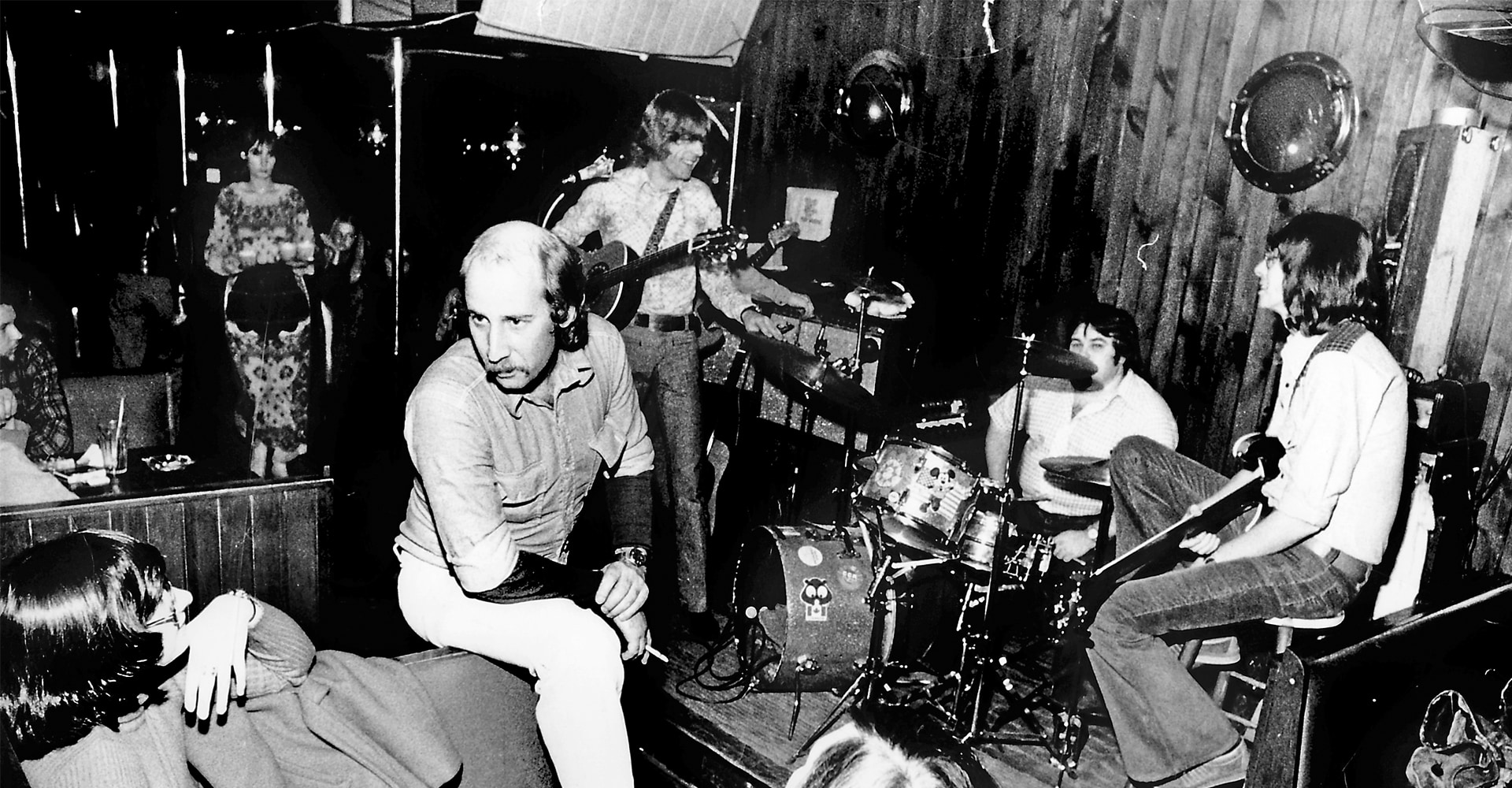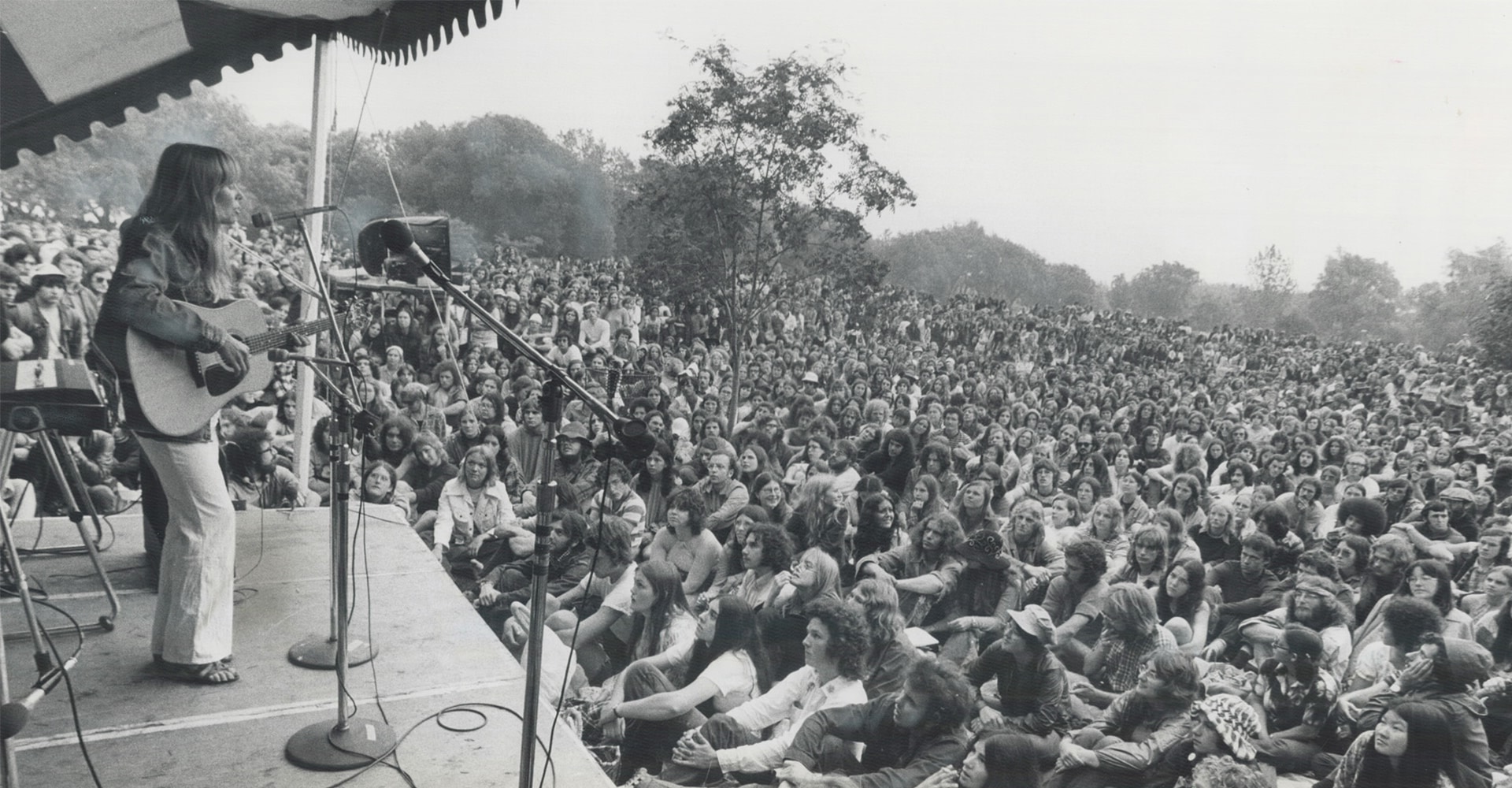
Buffy Sainte-Marie's half-century career as an artist has been grounded in her strong political beliefs and Indigenous identity.
Responsible for writing some of the most enduring protest songs of the twentieth century, Toronto audiences first heard her haunting voice and lyrics on stage at the coffeehouses of Yorkville in the 1960s. Sainte-Marie’s music and political activism have always been intertwined: her music lent strength to protests at Toronto’s Queen’s Park and music festivals on the Toronto Islands.
Her music continues to resonate today: sampled, remixed, and covered by Kanye West, Tanya Tagaq, A Tribe Called Red, Janis Joplin, among many others.
Universal Soldier
It's the middle of the night, the year is 1962, and Buffy Sainte-Marie is at the San Francisco airport, waiting for her connecting flight from Mexico to Toronto. She's surrounded by men in uniform -- wounded soldiers returning from Vietnam on gurneys and in wheelchairs.
War hadn't even been declared yet, but the encounter deeply affects her, and she spends the rest of her trip thinking about these men, who they are fighting for, and why.
While on her flight to Toronto, she begins writing a song. By the time she goes on stage that night, she is almost ready to premiere it. Between sets in the basement of the Purple Onion in the Yorkville neighbourhood, Buffy Sainte-Marie finishes writing “Universal Soldier.”
It becomes one of the most popular anti-war anthems ever written.
Five years later...
A 21-year-old morse code operator, named Robert Simpson, lies in his bed on board his troopship in Vietnam.
His mind is filled with his duty of service, his mortality and that of his sworn enemies. He writes on the canvas of his bed the lines from "Universal Soldier".
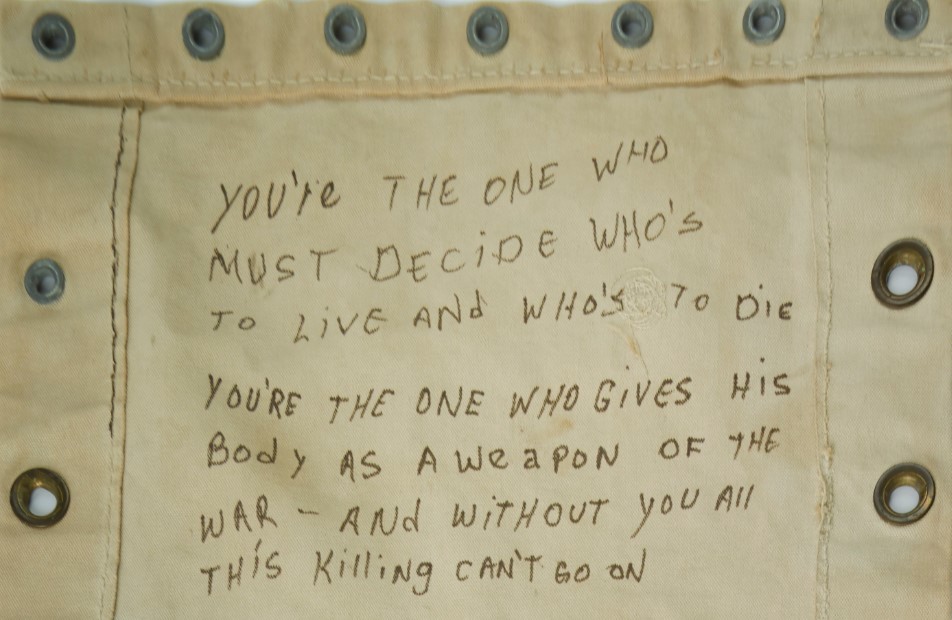
A canvas cot from a Vietnam warship, inscribed with lyrics from "Universal Soldier" by Buffy Sainte-Marie, 1967.
Courtesy of the Smithsonian Institute
Listen: Universal Soldier
He's the one who gives his body
as a weapon to a war
and without him
all this killing can't go on.— Buffy Sainte-Marie
This online exhibition uses third-party applications including Spotify and YouTube. Check with your organization’s web administrator if you are unable to access content from these channels in the exhibition.
A Career Takes Flight
Born on the Piapot Cree First Nation reserve in the Qu’Appelle Valley in Saskatchewan, Buffy Sainte-Marie took to music from a young age, teaching herself to play piano at age three. Adopted by a Massachusetts family, Sainte-Marie learned little about Canada while growing up.
Sainte-Marie began to travel to Canada after graduating from university at the top of her class, singing and playing guitar in Toronto’s growing folk music venues like the Purple Onion in Yorkville. There she met other emerging artists like Joni Mitchell and Leonard Cohen.
While in Toronto, she also spent time at the new Friendship Centre on Spadina Avenue (now the Native Canadian Centre of Toronto), learning about the Indigenous communities of Canada, including the Cree.
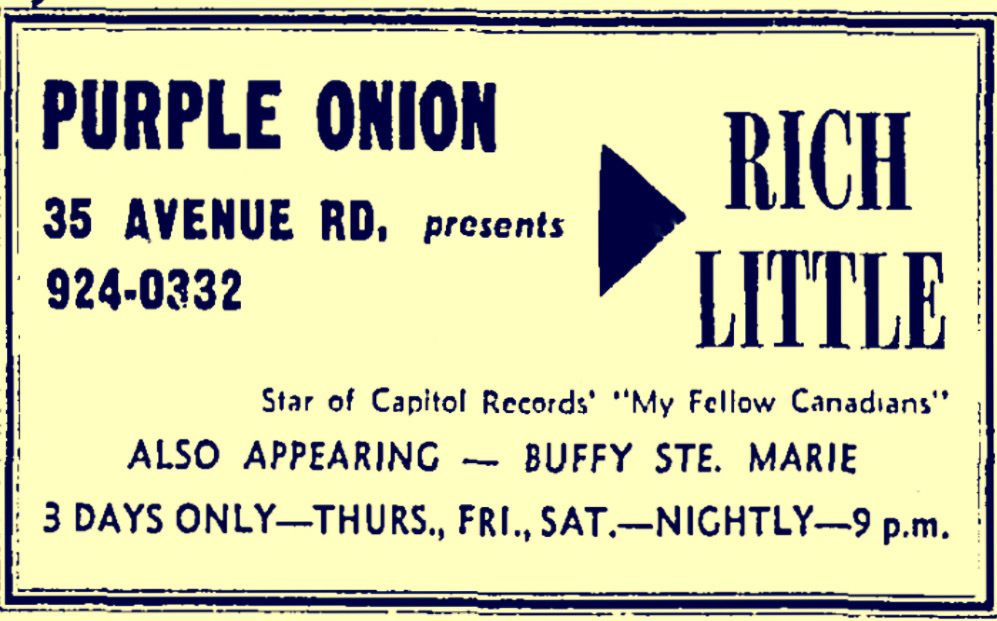
Toronto Star, February 3 1963.
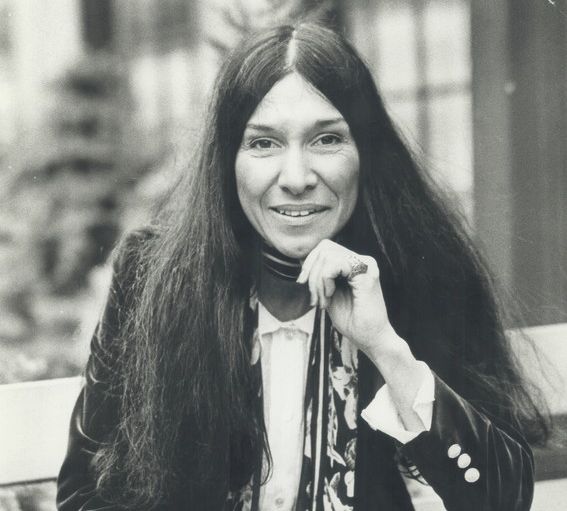
Buffy Sainte-Marie, 1977.
Photograph by David Cooper. Courtesy of Toronto Star Photo Archives.
Medicine Bird Singing
1964 was a big year for Buffy Sainte-Marie. The launch of her debut album It’s My Way!, which included her now-famous war anthem “Universal Soldier”, led to numerous accolades and awards, including Billboard magazine naming her the best new artist of the year.
The same year, Sainte-Marie was formally welcomed back to the Piapot community of her birth: in a ceremony, Sainte-Marie was given the Cree name Medicine Bird Singing.
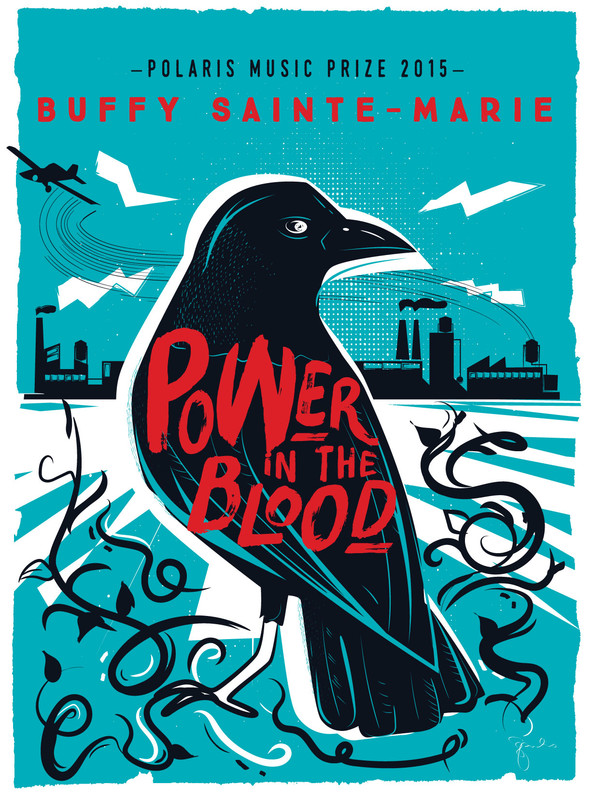
Her 2015 album Power in the Blood received the Polaris Music Prize and the Americana Music Award for Free Speech. She is described by music critic Ann Powers as a "plain talker when it comes to love and politics."
Polaris Prize poster for Power in the Blood by Buffy Sainte-Marie, 2015, designed by Cai Sepulis.
Love & Politics
Sainte-Marie's half-century career as an artist has been grounded in her political beliefs and identity.
In the 1970s, she became a contributing writer and semi-regular cast member on Sesame Street, teaching a generation of children about Indigenous cultures. Of songwriting, she has said:
I’ve found that a song can be more effective than a 400-page textbook. It’s immediate and replicable, portable and efficient, easy to understand – and sometimes you can dance to it.
—Buffy Sainte-Marie
This online exhibition uses third-party applications including Spotify and YouTube. Check with your organization’s web administrator if you are unable to access content from these channels in the exhibition.
Listen: Working For the Government
Hot war, Cold War
M-m-m-money and guns
It's all the same to him, he
Workin' for the government.— Buffy Sainte-Marie
Honours and Resistance
Her music has been sampled, remixed, and covered by Kanye West, Tanya Tagaq, A Tribe Called Red, Janis Joplin, and others.
The self-taught singer songwriter has been honoured with JUNO Awards, a Grammy, the Polaris Prize, and the Order of Canada. Her 2017 album, Medicine Songs, contains resistance songs that highlight Indigenous issues of genocide, residential schools, poverty, and environmental health, which are as relevant today as they were in the 1960s.

Buffy Sainte-Marie performing at the Polaris Prize Gala at The Carlu, September 21, 2015.
Photograph by Dustin Rabin, courtesy of the Polaris Music Prize

Buffy Sainte-Marie reacts as she is named winner of the 2015 Polaris Music Prize at its Gala, The Carlu, Toronto, September 21, 2015.
Photo by Dustin Rabin, courtesy of the Polaris Music Prize
As a songwriter, I never set out to be courageous or political. I just wanted to tell my stories as authentically as possible, and bring light to the truth.
— Buffy Sainte-Marie
Dive Deeper
Official Web Site of Buffy Sainte-Marie
Andrea Warner. Buffy Sainte-Marie: The Authorized Biography. Vancouver: Greystone Books Ltd., 2018.

